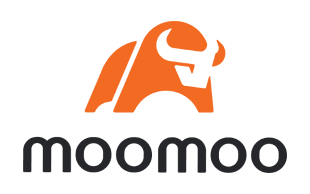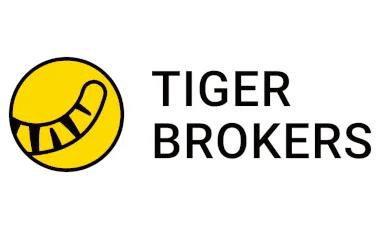Our top pick for
ASX trading

CommSec and nabtrade are two of Australia's most popular share trading platforms, but how do they actually compare on things like brokerage fees, features and available markets?
Our top pick for
ASX trading

Our top pick for
Copy trading

Our top pick for
Beginners

This is a breakdown of CommSec and nabtrade's trading fees on ASX (Australian Securities Exchange) shares, based on different trade sizes. For the purposes of this comparison, we're comparing a CommSec account that has Commonwealth Direct Investment Account (CDIA) attached.
Overall, CommSec is generally more cost effective than nabtrade on ASX trades on smaller size trades (under $3,000), while nabtrade is more cost effective on larger trades (above $10,000).
nabtrade has one brokerage fee structure for international shares, while CommSec has variable brokerage fees based on which global market you want to trade. It's also worth noting that CommSec has a much larger range of global markets compared to nabtrade, which we'll touch on the in the next section.
You'll be charged either a flat fee or a percentage fee, depending on which is greater:
CommSec is likely to be more cost effective on US trades, while nabtrade should be more cost effective on UK, Hong Kong and German stocks.
Both nabtrade and CommSec offer CHESS-sponsored ASX stocks, but CommSec has a much larger range of international markets. nabtrade only lets you trade the US, UK, Hong Kong and German markets, while CommSec lets you trade those plus a number of other European markets as well as the Japanese, Singapore and Canadian markets.
Trade across 8 exchanges in the following 5 markets:
Trade 13 global markets:
CommSec is the clear winner on available markets, offering access to a range of Asian and European markets that aren't available with nabtrade.
Both nabtrade and CommSec let you trade options and also access margin lending. Both also let you place market and limit orders, as well as conditional orders.
It's effectively a dead heat on trading tools with both nabtrade and CommSec offering options trading and advanced order types.
Both platforms provide solid educational resources and research, however nabtrade offers free market data, while CommSec only offers it for free if you hit a certain minimum trade threshold each month.
Both CommSec and nabtrade have customer support phone lines that are open from 8am during the work week. Both also have a rating of 1.5 out of 5 on ProductReview, based on more than 200 reviews (last checked 20 September 2024).
CommSec and nabtrade both offer a phone support Monday to Friday, but neither offers an online or live chat function.
CommSec and nabtrade have features that will appeal to new and experienced share traders, but there are a few differences in their fees structures.
In terms of ASX share trading, CommSec will likely be cheaper on trades under $3,000, while nabtrade will be cheaper for trades above $10,000.
The costs for overseas share trading is quite different. CommSec offers a much broader range of international markets (13 to nabtrade's 5) so will be a better option if you're wanting to trade certain Asian or European markets.
CommSec is also more cost effective on smaller US stock trades, while nabtrade will likely be more cost effective on German, UK and Hong Kong stocks.
In terms of currency conversion fees, CommSec has a flat 0.55% fee, while nabtrade will range between 0.5%-0.8% depending on the market.
Check out our in-depth reviews of CommSec and nabtrade for a more detailed analysis of the two trading platforms:
CommSec share trading review - "With a CommSec share trading account, clients can buy shares online quickly, easily and most importantly, affordably. Whether via their browser or mobile app, CommSec clients have access to real time quotes, news and state of the art charting to help give them the competitive advantage required to succeed in the share market."
nabtrade online share trading review - "Whether you're a seasoned trader or someone who's new to the investment game, nabtrade simplifies the share trading process. The online trading platform has a user-friendly interface, comprehensive research and reporting available and a tiered service level tailored to your trading activity. Whatever type of trading you're looking to do, nabtrade can help you research, invest and optimise your trades and investments."
If neither CommSec or nabtrade look right for you, take a look at our guide on choosing the best online trading share trading platform or take a look at some of the brokers in the table below.
Important: The standard brokerage fee displayed is the trade cost for new customers to purchase $1,000 of either Australian or US shares. Where a platform charges different fees for both US and Australian shares we show the lower of the two. Where both CHESS sponsored and custodian shares are offered, we display the cheapest option.
Looking to start investing? Here are our top 6 online trading platforms for total beginners in Australia.
We used Finder's proprietary algorithm to find Australian-listed companies that have strong fundamentals and have a share price under $5.
Best performers included Latitude 66, Cosmos Exploration and Javelin Minerals.
Here are our algorithm-selected 20 Aussie stocks worth watching in 2026.
Here's what investors should know before adding AI stocks to their portfolios.
Find out the different ways you can invest in the S&P 500 index from Australia.
Following a couple of lean years for dividend investors, here are 10 ideas you could consider in your portfolio.
Index funds are a hot topic right now, but how do you actually invest in them?
If you’re thinking of investing in gold, our guide will explain how and where to buy gold in Australia as well as the pros and cons of investing in it.
Find cheap stock brokerage in Australia when buying and selling shares on the ASX and other international exchanges.
I need to sell my mothers shares. I have power of attorney. I’d like to see someone and not post the information back and forth. Who can I go to.
Hi Andrew,
Good day and thanks for your inquiry.
You may refer to our list of ASX brokers. Please take note that this service comes with a broker’s fee whenever you place a trade to buy or sell shares, so it’s worth your while to shop around for the online share trading platform that offers the lowest brokerage fees.
Hope this helps!
Best,
Nikki
Hi : )
Which one (Nabtrade vs Commsec) is better for international share trading (Mainly US)?
Is my understanding correct that while Nabtrade offers a lower brokerage rate at $AUD 14.95/transaction, it charges a foreign currency exchange margin with every transaction.
On the other hand, it appears that CommSec opens an US account (through Pershing LLC) and conduct transaction using this US account, hence avoiding the foreign exchange margin (unless of course you transfer money from the US account to the CommSec cash account).
So while the Brokerage fee of CommSec appears higher ($US 19.95), the total cost per transaction between the two might end up being similar?
Can you please provide further insight comparing the two platforms in regards to international share trading?
Many thanks.
Max
Hi Max,
Thanks for your feedback and comment.
We’ll be writing up a case study on this however, the answer will depend on the amount the person wants to trade.
Regards,
Clarizza